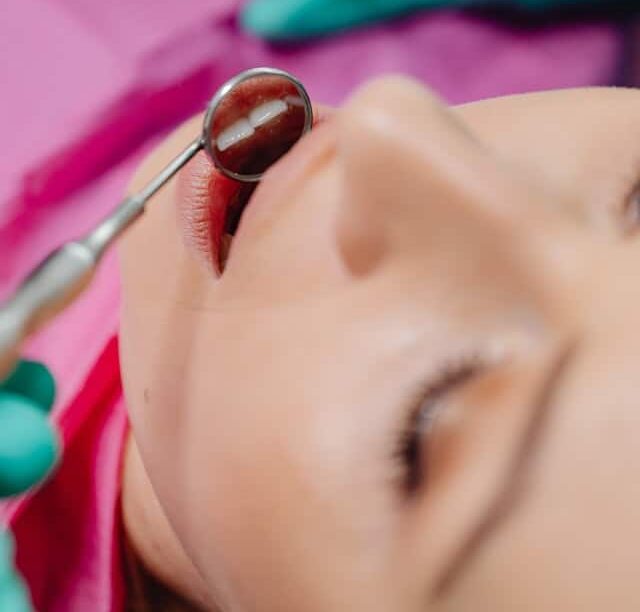Teeth Pain in Pregnant Women: Why Does It Happen? When Does It Start? What to Do About It?
Teeth pain in pregnant women is one of the undesirable possibilities for an expectant mother. Before pregnancy, you should get a comprehensive oral and dental examination.
While pregnant, the vomiting and nausea reflex seen in the first period of pregnancy can cause damage to the teeth.
Failure to pay attention to adequate oral hygiene can cause rapid decay and toothaches.
In this case, a root canal treatment may be needed. The goal is to remove the patient’s pain by removing the living tooth tissue, called the pulp, consisting of the vein and nerve packs.
The most suitable period for this treatment is the second trimester of pregnancy.
Although the ideal period for treatment is the second trimester, in some cases, root canal treatments of the teeth can be performed in the first or last trimester.
During pregnancy, you can receive dental treatment. However, you must make sure that you are sitting in an appropriate position.
Issues to be considered in this process: you should not take x-rays or use any special electronic devices that require radiography, you should numb the tooth with an anesthetic solution that will not cause early contractions, and you should avoid painkillers or antibiotics that will harm the fetus.
Contemporary dentistry has made advances in treating pregnant women, and your dentist should be well aware of the proper precautions to take.
What to Do About Tooth Pain?
Dentists explain what to do in the face of dental problems encountered by expectant mothers as follows:
They say that the reason for the sudden onset of tooth pain in pregnant women is an indication that the dental nerve is affected, and that a root canal treatment may be needed.
They state that gum problems during pregnancy can be treated every month of pregnancy, buried wisdom teeth generally cause pain, and after an acute exacerbation, they can return to a passive state.
It is stated that in the case of such pain, the treatment (if possible) should be postponed until after the birth.
Why Do You Have a Toothache During Pregnancy?
Apart from the lack of oral hygiene after frequent vomiting in the first periods, many things can cause teeth to pain in pregnant women.
One of the biggest changes in pregnancy starts in the gums. The main reason for this change is hormonal changes that cause an increase in progesterone and estrogen levels in the body with pregnancy.
Bacterial plaque accumulation on teeth increases in direct proportion to hormones.
Failure to take the necessary precautions to keep the plaque away from your gums means that you can experience tooth pain. If we examine all the reasons one by one:
-
Decay
One of the most important causes of tooth pain in pregnant women is undoubtedly caries. If the necessary care is not taken for oral care, the teeth will decay. Foods containing sugar consumed during pregnancy damage the protective layer of the tooth due to the acid they produce.
-
Tooth Enamel Wear
This situation is one of the factors that cause toothache. Tooth enamel covers the tooth and prevents the inner layers from being damaged.
Enamel has a hard structure, but chemical or physical factors such as hard-shelled foods, acidic beverages, and teeth grinding damage the enamel. In this case, the damaged tooth enamel also becomes sensitive to cold and hot stimuli.
-
Calcium Deficiency
Sufficient calcium is extremely important for you and your baby to have a healthy pregnancy. If you do not include calcium-based foods in your diet, the calcium that previously accumulated in the body will be used.
Therefore, the calcium in the body is depleted and some disorders begin to appear in the teeth.
-
Gum Inflammation
One of the biggest factors of toothache is gingivitis. Plaques that are sticky, colorless and soft in texture produce toxins. The toxins produced damage the gum tissue.
This means gingivitis occurs. If the necessary care for oral health is not taken in time, serious problems such as bleeding gums and swelling of the gums may occur during pregnancy.
When Do Toothaches Begin During Pregnancy?
It would not be right to give a clear answer to this question. During pregnancy, you may struggle with toothaches at any time.
However, between 2-8 months of pregnancy are the riskiest periods for toothache.
What Is Good For Teeth Pain in Pregnant Women?

Teeth pain in pregnant women – Try these if your pain is mild
If the pain is unbearable, you should never interfere with it yourself, you should seek help from a dentist.
However, if your toothache is mild, such pain can be easily stopped at home:
- Painkillers: Pain relievers are extremely effective in stopping toothache. However, sometimes mothers can exceed the dose while looking for a solution. Repeatedly taking painkillers during pregnancy is an extremely risky action, so make sure to take the correct dose and use it in moderation.
- Mouthwash: Gargling with salt water often relieves pain. However, remember that the water should not be cold.
- Brushing: You can try to relieve the pain by brushing or flossing the aching area of the tooth. However, be very careful that the brush is soft.
- Make Sure Food Does Not Contact Sore Teeth: If you put food in contact with the aching tooth, the pain will be multiplied. Therefore, you must be very careful while eating. You should keep food away from the aching tooth.
- Cold Compress: Cold compresses are another method used to relieve pain. Cold compresses on the chin or the swollen part of your face if you have inflammation will reduce your pain.
A Remedy That Is Good For Teeth Pain in Pregnant Women
Pomegranate juice is good for unbearable toothache. When pomegranate juice is kept in the mouth, it relieves or partially reduces the pain in a short time.
Gargling with pomegranate juice 2-3 times a day also strengthens the teeth.
See Also:

As a nutritionist, I research, find and experiment with recipes, natural diets and meal plans for weight loss, bodybuilding, and detoxing.
